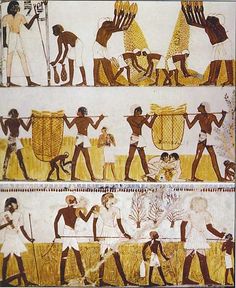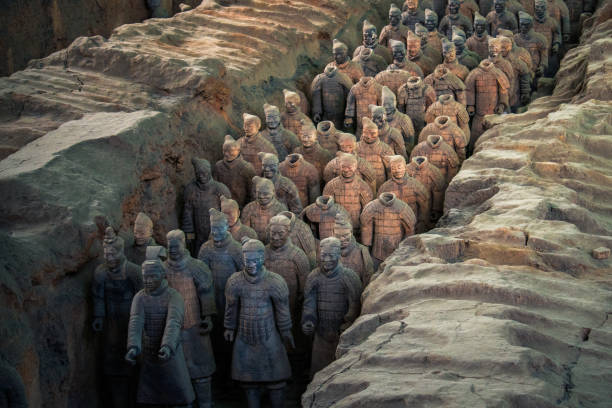
Oregon City Falls
The Oregon Trail ended near falls that became an energy hub for area, transmitting the first electric power to light Portland streets and providing energy to feed industrial mills along its banks. Today the buildings lie vacant in disrepair, with plans for them to be demolished and the falls resorted to its original beauty. The wheel turned. The area has to be cleansed of debris to meet today’s needs.
History- A case for Study
In the New Reformers (1844) Ralph Waldo Emerson wrote, “We are students of words: we are shut up in schools and colleges and recitation rooms for ten or fifteen years and come out at last with a bag of wind, a memory of words and we do not know a thing.”
His complaint is valid today, and that history is poorly taught, affects the nation. Lectures and memorization are history killers for most students. The relevancy of what happened hundreds of years ago is difficult for most children to comprehend but unfortunately, most adults find it mystifying as well. A survey by the Woodrow Willson Institute found that only one in three Americans would pass the U.S. citizenship test, that 2 percent of those surveyed identified climate change as the cause of the Cold War and that many confuse the civil rights movement with the Civil War.
Americans are prone to consider history is boring and lacks practical purpose. Yet, the subject doesn’t have to be presented in dry, pedantic ways. It can be told through stories that bring the past to life. It is through them that we learn how to manage the future. Knowing who we are, where we come from, and how the world operates is essential to deciding where we are going. History provides us with data that we use to make laws and develop theories about how society operates.
Our ancestors exert both positive and negative influences on how we live today. Ignoring historical events thrust into a purgatory where human induced tragedies repeat themselves causing unnecessary for misery. Our handling of the pandemic is a case in point. The plan put together by the Obama administration, based on years of information about past pandemics only to be ignored by the present administration to the detriment of thousands of people. The past is a map that delineates cause and effect and can help us understand human frailties and point out moral issues and evolving values that keep up with changes in society.
Before the birth of Christ, around 5114 years ago, Egypt’s Old Kingdom dynasties cycled through 30 dynastic periods assigned by scholars to seven kingdoms. Major shifts occurred during times of greed, political strife, invasions, and civil war. During peaceful times the country prospered, producing architectural masterpieces that displayed the kingdom’s wealth. With few threats, there was time to cultivate art in its highest forms.


The terracotta warriors at the Mausoleum of the First Qin Emperor in Xi’an, Shaanxi Province, China
China also went through dynastic cycles. Many scholars today consider the communist rule but another repetition. According to theory, the various dynasties reach a political, cultural and economic peak when, because of moral corruption, they lose the “Mandate of Heaven, and fall, to be replaced by a new dynasty. The Mandate of Heaven says that there can be only one legitimate ruler at a time and that the power bestowed on the emperor is blessed by the gods as long as he uses it for good. Dynasties fall when children of wealthy rulers receive privileges that make them lazy and less inclined to work for the betterment of the state. They become focused on building personal wealth and power and willingly do so on the backs of peasants and the working poor. Dynasties were overthrown through rebellion and bloodshed, peasant revolts and external invasions.
Books have been written about the rise and fall of The Roman Empire, The Third Reich, The West, and Texas Oil Tycoons. History tells of powerful leaders who rule bloated empires that fall under their own weight. It tells how discord and corruption run rampant brings about uprisings that usher in periodic stretches of order and prosperity such as the great Pax Romana—two centuries of peace under Augustus in 27 BC.
At this moment, I feel like I am living in the horror loop of a great historical cycle. Around me I see greed and desire for personal wealth above all supersede fairness and justice. It is a period where contemporary Machiavellis rule nations with dictatorial authority. In 1530s when Machiavelli wrote “The Prince” in a letter to Lorenzo de Medici ruler of Florence, he meant it to be a guide on how to lead. His basic premise was that staying power justifies any means used to do so-no matter how horrific. That is certainly occurring in the United States and many other nations around the globe today.
Though I will never concede that the end justifies the means, Machiavelli goes on to argue that once leadership is obtained, reason and understanding should be used to better politics so that it will work for the common good. He gives warnings of what will happen when power is misused. His cautions can be applied to ideas of the alt right and the way the media and politicians promote “fake news.” Contemporary Machiavellian leaders use evil methods to gain and maintain a power that they do not use for the common good. Instead, they line their own treasure chests and set up legal precedents that undermine democracy. They spread falsehoods and rumors that make people fearful. By doing so, they divide citizens, incite civil unrest and arm neighbors who take law in their own hands.
There is no doubt in my mind that the cycle we are in will eventually play out, and the strife will end. Unfortunately, you and I may not live long enough to enjoy the fruits of the next “Pax America.” But, for the sake of our children’s grandchildren, let’s study history and look back in time to discover ways to break through dysfunctional cycles that allow self-serving magnates to flourish at the expense of humanity.
References
Wexler, N (2018) Three Myths That Explain Why Americans Don’t Know Much About History. Forbes. retrieved from MYTHS https://www.forbes.com/sites/nataliewexler/2018/10/11/three-myths-that-explain-why-americans-dont-know-much-about-history/?sh=4aef9fdb47ba
Millmore, (2020) M: Egyptian Old Kingdom Dynasties. Discovering Egypt. retrieved from https://discoveringegypt.com/ancient-egyptian-kings-queens/egyptian-old-kingdom-dynasties/
The Dynastic Cycle. Students of History. retrieved from https://www.studentsofhistory.com/the-dynastic-cycle
History Vault: Rome:Rise and Fall. History. retrieved from https://www.history.com/news/history-vault-rome-rise-and-fall
(2019) Machiavelli’s ‘The Prince’ and its Relevance to the Modern Political Sphere. Dissertation retrieved from https://ukdiss.com/examples/machiavelli-the-prince-modern-politics.php
